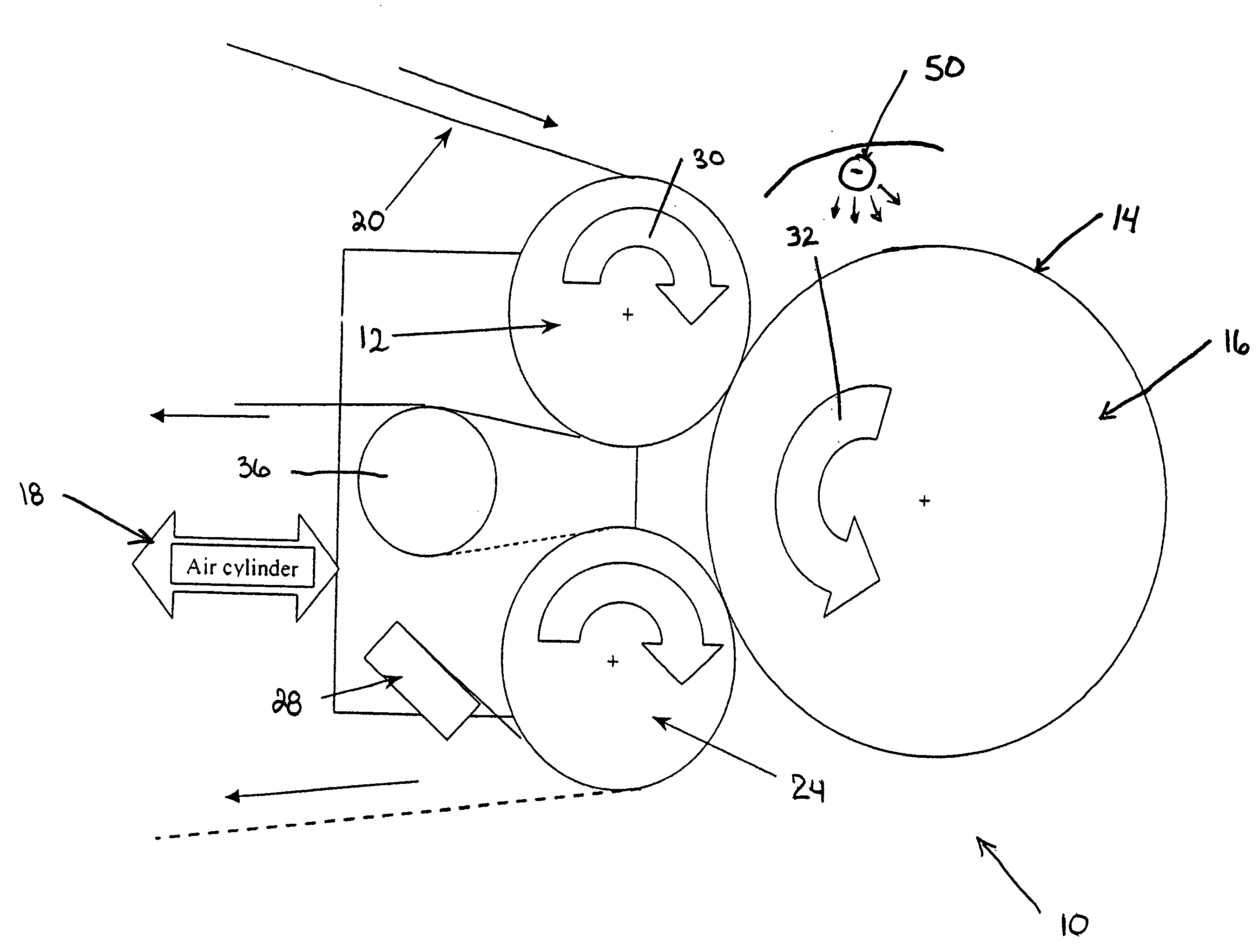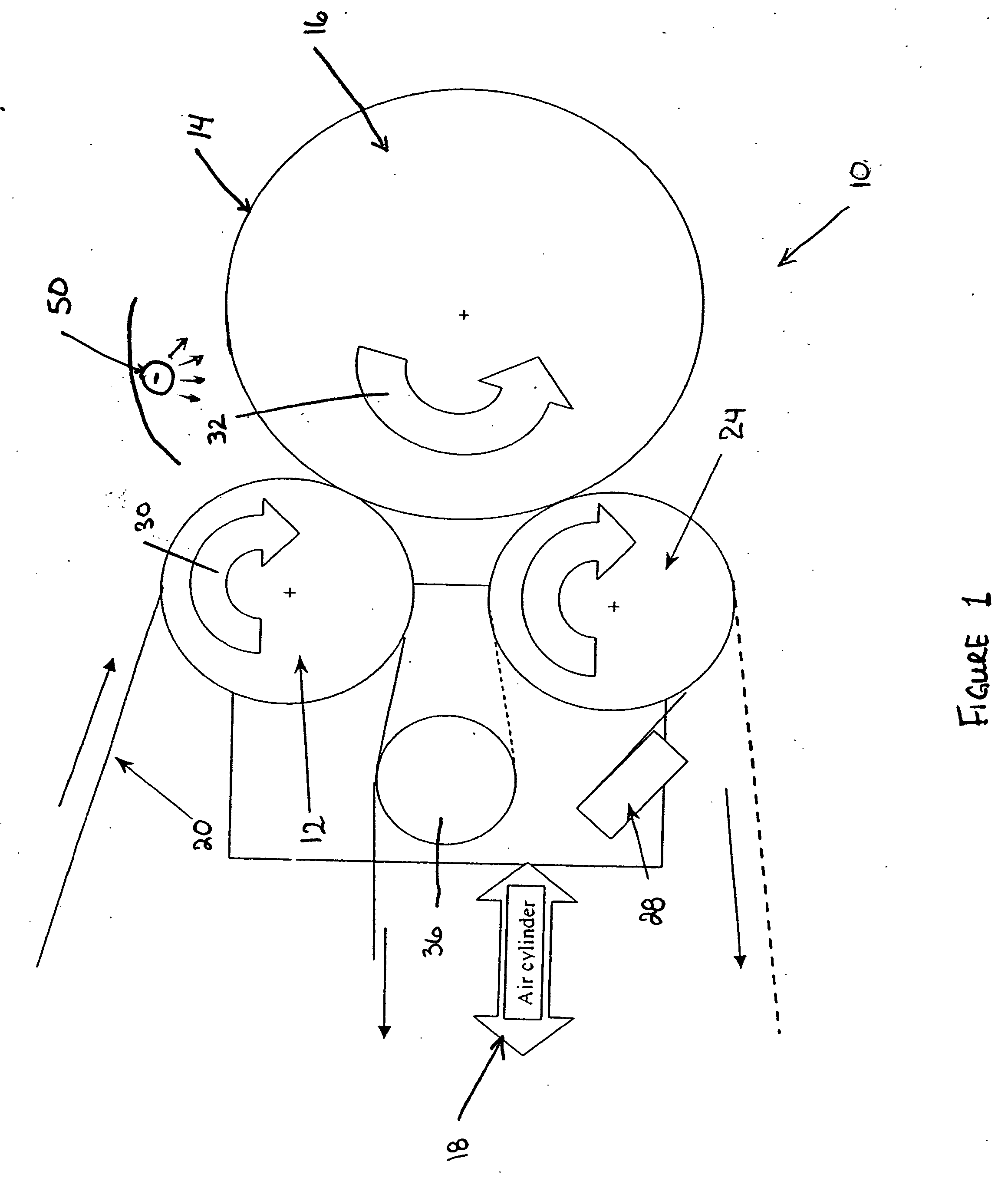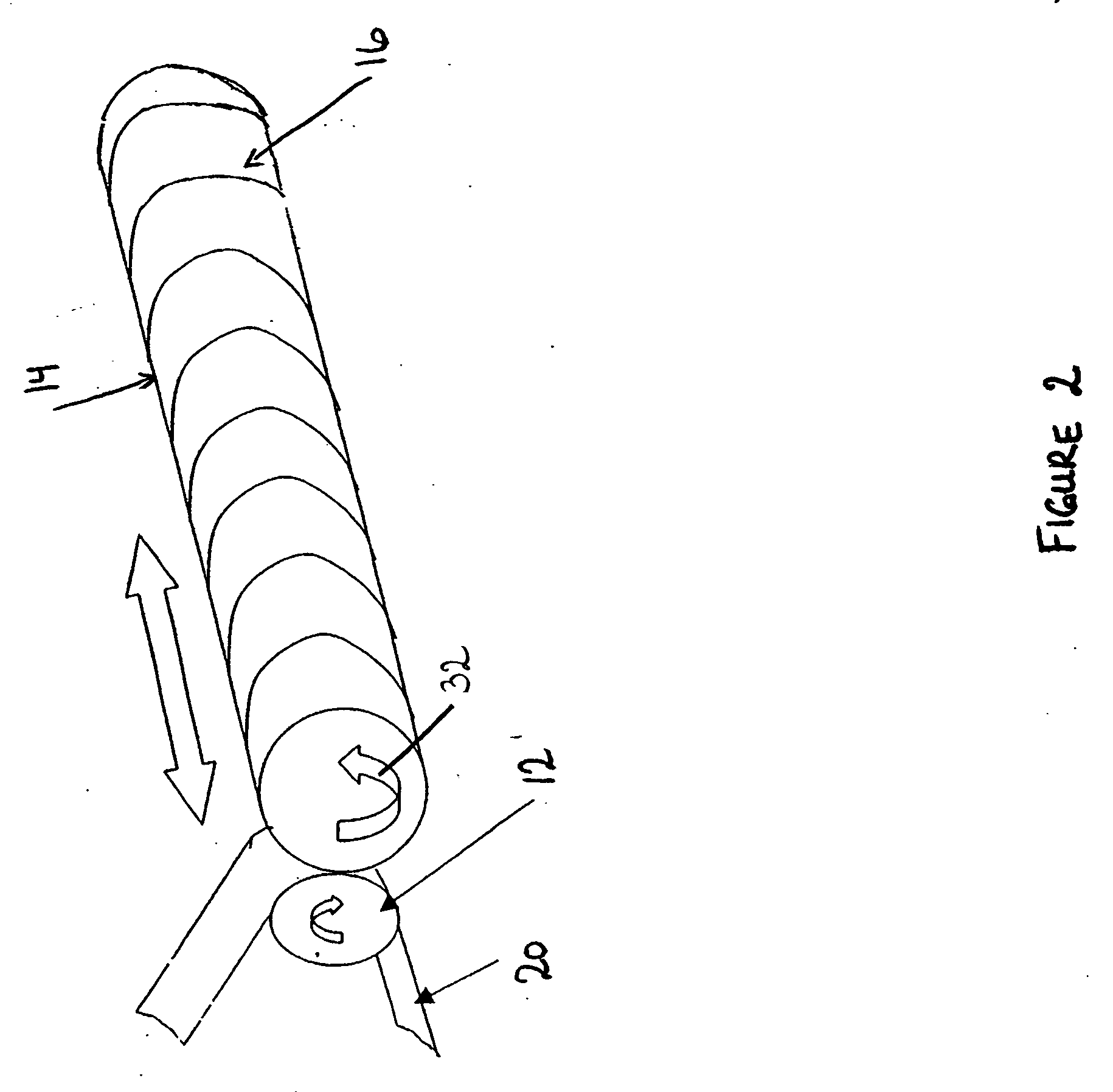Apparatus and method for thermally developing flexographic printing elements
a technology of flexographic printing and apparatus, which is applied in the field of method and apparatus for thermally developing flexographic printing elements, can solve the problems of loss of accuracy, method can be used, and additional machine and more tim
- Summary
- Abstract
- Description
- Claims
- Application Information
AI Technical Summary
Benefits of technology
Problems solved by technology
Method used
Image
Examples
Embodiment Construction
[0047] The present invention relates to an improved thermal development apparatus and a method of using the apparatus to remove non-crosslinked polymer from an imaged surface of a relief image printing element during a process for manufacturing the relief image printing element.
[0048] In another embodiment, the present invention relates to an improved combined exposing and developing apparatus and a method of using the apparatus to expose the relief image printing plate to actinic radiation to selectively cure, i.e. crosslink, portions of the photopolymer layer revealed during the imaging step, and thermally developing the relief image printing plate to remove non-crosslinked polymer from the imaged and exposed surface of the relief printing element during a process for manufacturing the relief image printing element.
[0049] The present invention also relates to an improved combined exposing, developing, and post exposure / detack apparatus and a method of using the combined apparatu...
PUM
| Property | Measurement | Unit |
|---|---|---|
| Temperature | aaaaa | aaaaa |
| Temperature | aaaaa | aaaaa |
| Length | aaaaa | aaaaa |
Abstract
Description
Claims
Application Information
 Login to View More
Login to View More - R&D
- Intellectual Property
- Life Sciences
- Materials
- Tech Scout
- Unparalleled Data Quality
- Higher Quality Content
- 60% Fewer Hallucinations
Browse by: Latest US Patents, China's latest patents, Technical Efficacy Thesaurus, Application Domain, Technology Topic, Popular Technical Reports.
© 2025 PatSnap. All rights reserved.Legal|Privacy policy|Modern Slavery Act Transparency Statement|Sitemap|About US| Contact US: help@patsnap.com



